
Vereinte Dienstleistungsgewerkschaft is a German trade union based in Berlin, Germany. It was established on 19 March 2001 as the result of a merger of five individual unions and is a member of the German Trade Union Confederation (DGB). With around 1.9 million members, Verdi is the second largest German trade union after IG Metall. It currently employs around 3000 members of staff in Germany and has an annual income of approximately 454 million Euros obtained from membership subscriptions. The trade union is divided into 10 federal state districts and five divisions and is managed by a National Executive Board (Bundesvorstand) with nine members. Frank Bsirske was the chairman of Verdi from its founding in 2001 until September 2019, when Frank Werneke was elected.

The Free Workers' Union of Germany was an anarcho-syndicalist trade union in Germany. It stemmed from the Free Association of German Trade Unions (FDVG) which combined with the Ruhr region's Freie Arbeiter Union on September 15, 1919.

The Free Association of German Trade Unions was a trade union federation in Imperial and early Weimar Germany. It was founded in 1897 in Halle under the name Representatives' Centralization of Germany as the national umbrella organization of the localist current of the German labor movement. The localists rejected the centralization in the labor movement following the sunset of the Anti-Socialist Laws in 1890 and preferred grassroots democratic structures. The lack of a strike code soon led to conflict within the organization. Various ways of providing financial support for strikes were tested before a system of voluntary solidarity was agreed upon in 1903, the same year that the name Free Association of German Trade Unions was adopted.
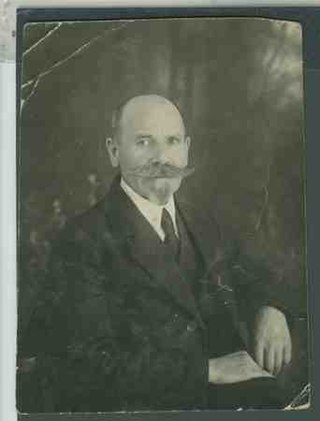
Fritz Kater was a German trade unionist active in the Free Association of German Trade Unions (FVdG) and its successor organization, the Free Workers' Union of Germany. He was the editor of the FVdG's organ Einigkeit and—after World War I—owner of the publishing houses Fritz Kater Verlag and Syndikalist.
Fritz Köster was a German anarchist editor and trade unionist.
Karl Roche (1862–1931) was a German syndicalist and left communist trade unionist. Roche joined the Free Association of German Trade Unions (FVdG) around 1900 as a seaman. He became a prominent member of the organization.
Carl Windhoff (1882–1940) was a German syndicalist trade unionist.
Gustav Kessler was a German trade unionist.

Milly Witkop(-Rocker) was a Ukrainian-born Jewish anarcho-syndicalist, feminist writer and activist. She was the common-law wife of the prominent anarcho-syndicalist leader Rudolf Rocker. The couple's son, Fermin Rocker, was an artist.

The First International Syndicalist Congress was a meeting of European and Latin American syndicalist organizations at Holborn Town Hall in London from September 27 to October 2, 1913. Upon a proposal by the Dutch National Labor Secretariat (NAS) and the British Industrial Syndicalist Education League (ISEL), most European syndicalist groups, both trade unions and advocacy groups, agreed to congregate at a meeting in London. The only exception was the biggest syndicalist organization worldwide, the French General Confederation of Labor (CGT). Nevertheless, the congress was held with organizations from twelve countries participating. It was marked by heated debate and constant disagreements over both tactics and principles. Yet, it succeeded in creating the International Syndicalist Information Bureau as a vehicle of exchange and solidarity between the various organizations and the Bulletin international du mouvement syndicaliste as a means of communication. It would be viewed as a success by almost all who participated.
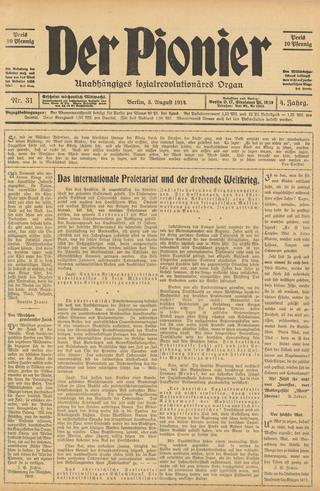
Der Pionier was one of two official organs of the radical socialist Free Association of German Trade Unions (FVdG).
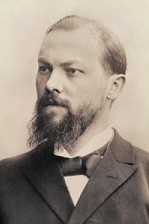
Gustav Adolf Deissmann was a German Protestant theologian, best known for his leading work on the Greek language used in the New Testament, which he showed was the koine, or commonly used tongue of the Hellenistic world of that time.
German individualist philosopher Max Stirner became an important early influence in anarchism. Afterwards Johann Most became an important anarchist propagandist in both Germany and in the United States. In the late 19th century and early 20th century there appeared individualist anarchists influenced by Stirner such as John Henry Mackay, Adolf Brand and Anselm Ruest and Mynona.

Badisches Volksecho was a German language weekly newspaper. It was published from Stuttgart, West Germany between April 1946 and March 1947. Later it was published from Mannheim, Karlsruhe and Stuttgart, West Germany between April, 1947 to August 11, 1956. It was published by the regional organization of the Communist Party of Germany in Württemberg-Baden. Albeit initially planned as an organ for northern Baden, it became distributed in the French occupation zone as well after the banning of the south Baden organ Unser Tag.
Freies Volk was a newspaper published daily from Düsseldorf, West Germany 1949-1956. Freies Volk was printed at Freier Verlag GmbH, Ackerstrasse 114.
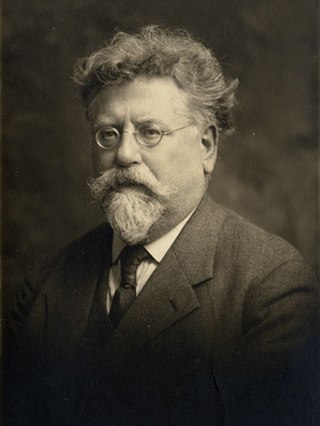
Johann Rudolf Rocker was a German anarchist writer and activist. He was born in Mainz to a Roman Catholic artisan family.
Volkswacht was a social democratic newspaper published in Danzig, Germany from 1910 to 1919. Initially, Volkswacht was published weekly. As of 1913, it was published twice weekly. In 1914 it was converted into a daily newspaper. The newspaper masthead carried the slogan Organ für die werktätige Bevölkerung in Westpreußen. It was issued as a publication of the Free Trade Unions.
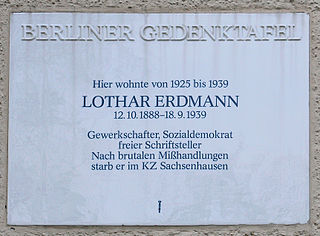
Karl Hermann Dietrich Lothar Erdmann was a German journalist. During the Weimar Republic he was the editor of the trade union theory organ Die Arbeit. He was a main supporter of the turning away of trade unions from social democracy at the end of the Republic. Despite his rapprochement with National Socialism, he died after maltreatment in the Sachsenhausen concentration camp.
Union der Bergarbeiter in der CSR, initially known as Union der Bergarbeiter Österreichs, was a miners trade union of miners in Austria and the First Czechoslovak Republic 1903–1938. Initially a multi-ethnic union in Habsburg Austria (Cisleithania), it was divided along ethnic lines in 1910. After the establishment of the Czechoslovak Republic, it became a union for miners of German ethnicity.

The "Börsenblatt – Wochenmagazin für den Deutschen Buchhandel", until 2002 "Börsenblatt für den Deutschen Buchhandel", is the association organ of the Börsenverein des Deutschen Buchhandels. The publication, founded in 1834, is the magazine with the highest number of advertisements and circulation in the German book selling trade. It came out once a week, later twice a week, and even daily for many years. The Börsenblatt is published by the Marketing- und Verlagsservice des Buchhandels. It informs the professional audience as well as private readers about news on the book market. Since January 2013, the specialist magazine has been published in weekly alternation as the "Börsenblatt Magazin" and the "Börsenblatt Spezial". The Börsenblatt Spezial highlights the trends within the various product groups. Current industry reports are published on the magazine's homepage.












